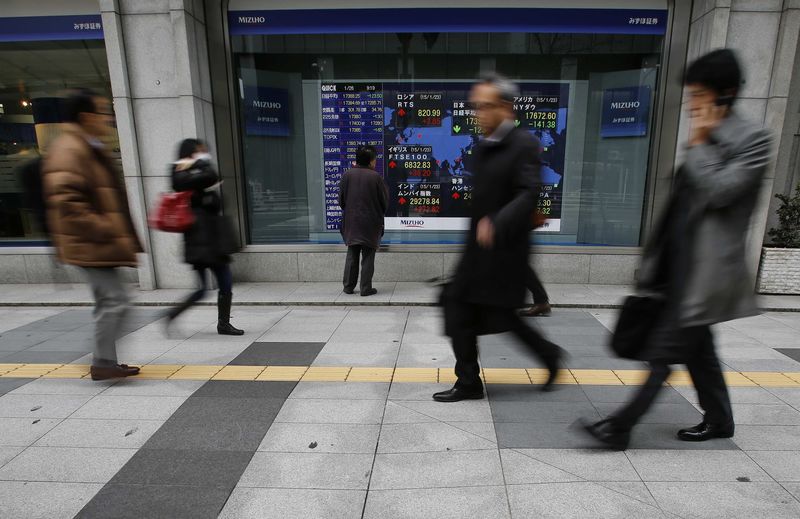Bank of America just raised its EUR/USD forecast
* Tokyo Stock Exchange trading halted due to hardware glitch
* Suspended all day for first time in worst-ever outage
* Glitch comes as markets react to U.S. presidential debate
* Government spokesman says incident "extremely regrettable"
(Recasts, adds details)
By Stanley White and Eimi Yamamitsu
TOKYO, Oct 1 (Reuters) - Trading on the Tokyo Stock Exchange
was brought to a complete standstill by a hardware failure for
all of Thursday, in the worst-ever outage for the world's
third-largest equity market.
Japan's TSE said it would reopen as usual on Friday, but
frustrated investors were left unable to buy shares in Tokyo
following an overnight rise on Wall Street.
The outage will test the exchange's credibility just as new
Prime Minister Yoshihide Suga has prioritised digitalisation and
could dent Tokyo's hopes of wooing banks and fund managers from
Hong Kong amid a new security law imposed by China. "I feel painfully responsible for all the confusion this
incident has caused for investors and market participants," TSE
Chief Executive Officer Koichiro Miyahara told a news briefing
The TSE said the glitch was the result of a hardware problem
at its "Arrowhead" trading system, and a subsequent failure to
switch to a back-up. It caused the first full-day suspension
since the exchange switched to all-electronic trading in 1999.
Fujitsu Ltd 6702.T , which developed the trading system,
said it was investigating the problem, while the TSE said it has
no plan at this point to ask for any compensation.
Tokyo Governor Yuriko Koike said a quick fix was crucial to
ensure trust in the roughly $6 trillion market.
"The timing is really just bad," said Takashi Hiroki, chief
strategist at brokerage Monex in Tokyo, adding that many market
participants had been hoping to buy back their stocks or
increase their holdings after an overnight rise in U.S. markets.
"The market was robbed of that chance," he added.
The meltdown also coincided with the release of the Bank of
Japan's closely watched tankan corporate survey, which showed
business sentiment improved from a decade low. "It hasn't affected our trading, as we didn't have any
orders for Japan overnight, but it does mean we don't have a
fresh price for our Japanese holdings," William de Gale, manager
of the UK-based BlueBox Global Technology Fund which has around
5% of its assets in Japanese stocks, said.
'NEVER REPEATED'
Although smaller bourses in Nagoya, Fukuoka and Sapporo were
forced to suspend trade because they use the TSE system, trading
on the derivatives-focused Osaka Exchange continued, and Nikkei
futures JNIc1 ended 0.56% higher. MKTS/GLOB
"We have to make sure this kind of situation is never
repeated," Japan's top government spokesman, Katsunobu Kato,
told a briefing.
The TSE was prone to technical troubles in the past and was
notorious for sluggish trading, although there have been fewer
glitches since a new system was adopted in 2010. L4N2GS0TH .
Trading halts at stock exchanges are not uncommon due to
ever-increasing demands from high-speed, high frequency dealing.
The most recent serious outage at a major exchange was when
Germany's electronic trading platform Xetra, managed by Deutsche
Boerse DB1Gn.DE , had blackouts in April and again in July. A
technical glitch caused the London Stock Exchange LSE.L to
have its longest outage in years in 2019.
While Tokyo has been eclipsed by Shanghai in recent years,
it is still a global hub for foreign investors.
The daily turnover of shares traded on the TSE's main board
.TOPX was about 2.33 trillion yen ($22 billion) on average
over the past year.
"There will be a huge surge in trading volumes around the
U.S. presidential election, and this does raise some concerns
about the TSE's ability to process a large increase in orders,"
said Hideyuki Ishiguro, a senior strategist at Daiwa Securities.
($1 = 105.5600 yen)
